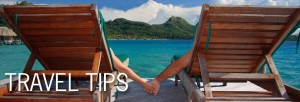I’ve been working from the road as part of my cross-country blogging journey writing about indie record stores for my site Turntabling.net. The trip, called Vinyl Road Rage, isn’t a vacation–I kept working my regular freelance clients while out and about.
On this trip there was plenty to learn about the joys of extended time away from the office, using coffee shops as your office, and how to survive on the road as a freelancer.
A lot of what I filed away for future reference on this trip hasn’t been about the business of freelancing per se, but rather how to keep yourself ready to DO business as a freelancer while on the road.
One of the best investments I made in preparation for the journey? A 12-pack of bottled water that cost me $2.50. That’s the price of two gas station bottled water purchases, more or less. Every little bit counts in this economy.
Another excellent frugal traveling thing I’ve done this year was to take full advantage of the hotel continental breakfast. And I do mean “take advantage of”, as I stashed plenty of extra free fruit, oatmeal packets and other sundries to eat while on driving, sparing me a stop and a lunch bill.
Add to that a little trick I’ve learned to do over the years; one of my favorite kinds of food is Thai cuisine. Thai is extremely portable, especially if you have a cooler or ice chest with you. One Thai lunch is usually enough to split into two meals anyway (or at least it is if you eat like me) so I found myself getting double mileage out of my lunches when I did shell out for them.
Neglecting food is a bad idea for a freelancer–I try not to skip meals when I’m doing these cross-country drives, but I do like to make good time, too. From experience I’ve learned that a skipped meal equals poor productivity, reduced concentration and a higher potential for errors when working online. So I pack a lot of portable goodies like nuts, yogurt, low-fat cheese and organic peanut butter to tide me over when I’m trying to get some good driving time in.
When you’re in our line of work, it’s important to be healthy so you can perform in any required high-stress situation that needs your attention, whether that’s in the middle of a road trip or sitting in your pajamas in the living room. Find ways to stay fed, keep from getting sick, and still meet your road trip goals and you’ll have little problem making them habitual–the rewards are well worth the effort.
One last tip for a road tripping freelancer–the farther outside your destination city the hotel room is, the better the prices seem to be. Just sayin’.




